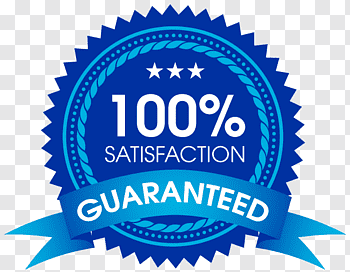The Self-Aware Leader
The Self-Aware Leader
ORDER NOW FOR THE ORIGINAL PAPER: The Self-Aware Leader
The Self-Aware Leader
The Self-Aware Leader
Consider a time when you led change at the organizational or individual level. What was the result? Looking back, what could you have done differently to improve results?
The DNP scholar must have strong leadership skills because they are responsible for leading change. Healthcare professional management and leadership are essential for improving quality and transforming care. Leadership is defined as the relationship between those who lead and those who choose to follow and act to direct and coordinate the activities of a team or group of people toward a common goal (Ladkin, 2020).
When I reflect on my most outstanding achievement in my nursing field, I am contented to be able to be impactful and resourceful to the healthcare institution.
I began my professional work experience as an ordinary nurse, but I became a nurse care coordinator with hard work and advancement in my education. I knew I was tasked with implementing change where necessary and ensuring diabetes patients received utmost care (Zenger & Folkman, 2013).
At my work station, nurses were reluctant in offering quality health care and particularly to diabetic patients. I realized that most of the diabetic patients were readmitted frequently. After an in-depth assessment of the issue, I realized that nurses lacked an accurate medical history of patients.
To curb this, I assigned each nurse a set of patients for which they were responsible for their wellbeing. They were to collect each patient’s medical history, which was clear and detailed.
With time I realized a decline in the number of readmissions among patients.
This basic technique assisted in the reduction of readmission cases. I’m sure I could have done things differently to get the same results, but the process I put in place surpassed my expectations.
Consider when you knew you needed to make a change but chose not to due to time constraints. What was the result? How might you make time to work on necessary personal changes to support your leadership formation?
It inspired to make a shift many times in my professional career but cannot do so due to time constraints. I work at a large public hospital in Texas City, and the available resources are way below the stipulated flow of patients in the hospital. This condition has left no choice rather than to work with the minimal available resources.
A remarkable experience was an incident when I was assigned the duty of orientating a new staff nurse. While precepting the new nurse, I was thinking about how many things my department missed in orientation, including a preceptor checklist.
Though I lacked preceptor support, I gave the new nurse all of the handouts and tools I had and created my checklist of the most important things she needed to know to work well in her new position. Because I felt underprepared due to a lack of support, my orientee gave me a positive review and shared her satisfaction with my orientation experience. To assist in my leadership growth, I will continue to search out new ways to strengthen work processes and share my ideas with my coworkers and upper management. I requested the new staff for feedback that would aid in process improvement. I also informed the relevant management of the tools and resources needed for an effective orientation process.
Consider a time when you led change effectively. List the key insights gained from this effort. How can you use these insights to lead future change efforts?
There are several critical insights gained from effective leading. For change to be evident, I learned that I needed to be transparent, a timekeeper, leading by example, transparent, respectful, and enhancing teamwork during the change process (Chamberlain College of Nursing, 2021).
Also, the ability to identify and solve issues is another critical insight gained from this effort. All the gained insights will help my professional and outside my professional since they are universal and applied in any given setting.
What critical external expectations determine the expectations you have for yourself as a leader?
As I begin my new position as a DNP practice scholar, I realize that I will need to demonstrate outstanding leadership skills because I will be a reform advocate who will also assist in the translation of change into clinical practice.
The DNP scholar has a significant role in leading progress, so I will need to keep working on the Zenger Folkman leadership survey’s weaknesses while also building on the strengths identified. Connecting with other professional groups outside of the workplace is one of the research items I would like to develop.
References
Chamberlain College of Nursing. (2021). NR-703 Week 1: Assessing leadership strengths. [Online lesson]. Adtalem Global Education.
Ladkin, D. (2020). Rethinking Leadership. https://doi.org/10.4337/9781788119320
Zenger, J., & Folkman, J. (2013, August). The eight-minute test that can reveal your effectiveness as a leader. Harvard Business Review. https://hbr.org/2013/08/how-effective-a-leader-are-you
I NEED A COMMENT FOR THIS DISCUSSION BOARD WITH ATE LEAST 2 PARAGRHAPS AND 3 SOURCES NO LATER THAN 5 YEARS.

